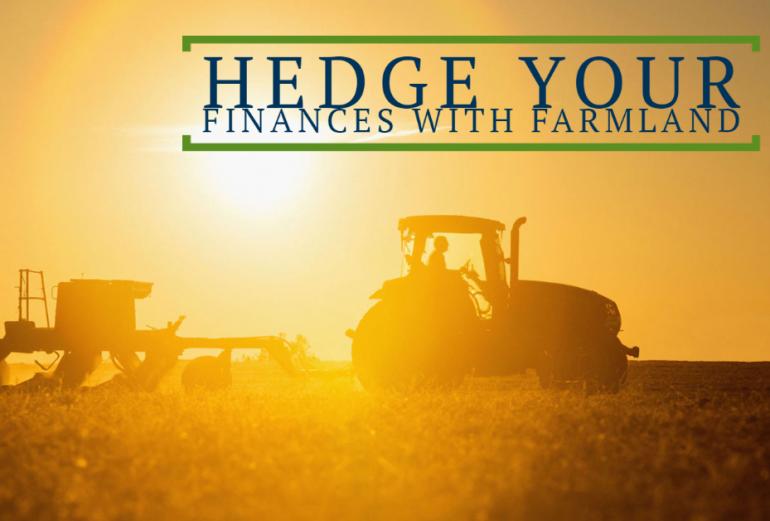Hedge Your Finances with Farmland

Hedge Your Finances with Farmland
The year 2020 drew to a close without much fanfare. Between a global pandemic and political tensions, there’s been a lot to process. The year has also left many wondering what to expect for 2021. Will it be more of the same? No one knows for sure.
We understand the concerns many folks have moving into 2021, especially when it comes to ensuring financial stability. You’re working hard to build a nest egg you can enjoy and perhaps pass on to future generations. A great financial planner will tell you it is important to mitigate risk, and we agree. In the financial planning world, that usually means diversifying your portfolio. But, for those that want to go beyond traditional securities, what else is out there that you can trust and has a history of a great return on investment? Thankfully, there is a solution that involves a great asset coupled with consistent passive income.
Investing in Farmland
There’s a good chance you’ve never considered purchasing farmland before. Or, you may have dismissed it quickly, thinking there’s too much overhead with little return. Fortunately, that isn’t the case with various crops in the state of Florida. It might just be the diversification you are looking for, and there’s a good chance you’ll also be helping the local economy with job creations. It’s a win-win.
Farming’s Strong Historical Performance
Sure, there are the stories of farmers struggling in down economies. While some of those may be true, the statistics tell a different story. Farmland has demonstrated strong absolute returns over the past several decades. According to farmtogether.com, it averaged 10% total annual returns (income + price appreciation) from 1992 to 2018 on the national level.
Farmland’s Low Volatility
Compared to most other asset classes, farmland has low volatility. It provides stability for investors, especially in adverse economic conditions. The farmland index hasn’t experienced a negative year in a twenty-year period.
Farmland’s Diversity
In periods of stock market downturns, farmland has traditionally seen growth and offers welcome diversification in those market seasons. The excellent risk/return profile combined with its resilience to recession and inflation has caused investment institutions to increase their investments in farmland over the years. For example, the farmland index was up 20% during the 2008-2009 Great Financial Crisis.
Consistent Farming Weather
While the weather turns bitter cold in other parts of the country and crop production slows down, Florida farms are able to grow and produce year-round. Mild winters with shorter days and warm soil allow sunshine state crops to flourish. Crops that are more sensitive to freezing weather are able to be protected when or if those occurrences happen in Central and North Florida.
Property Tax Exemption
Another advantage of purchasing farmland is the agricultural classification tax exemption in the state of Florida. In order to qualify, landowners must have an operational farm. Some farm investors even build a home on their farmland along with digging a pond. Who doesn’t want a great waterfront house while saving on property taxes?
Be As Involved As You Want
When purchasing a farm, one can be as involved as they want when it comes to operations. For those looking for a hands-off option, leasing is a great way to own a farm without the day to day responsibilities. The lessee handles most if not all of the overhead such as labor, packing, shipping, etc. Or, you can be 100% involved or find an opportunity in between like hiring a manager or foreman.
As you can see, there are plenty of options when it comes to investing in farmland. We’re sure you have lots more questions. Farm Credit of Central Florida provides financing for Farms, Homes and Land. Call us today at 863-682-4117 about hedging your finances with farmland!